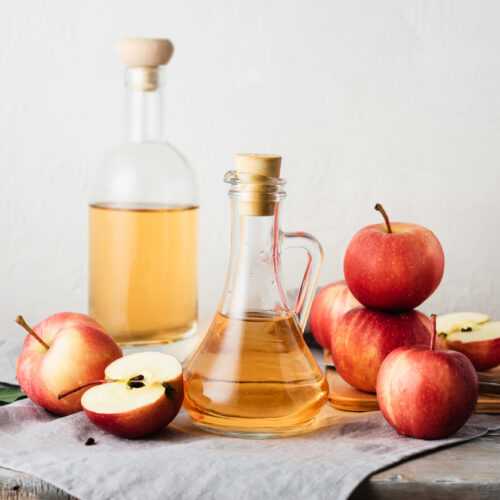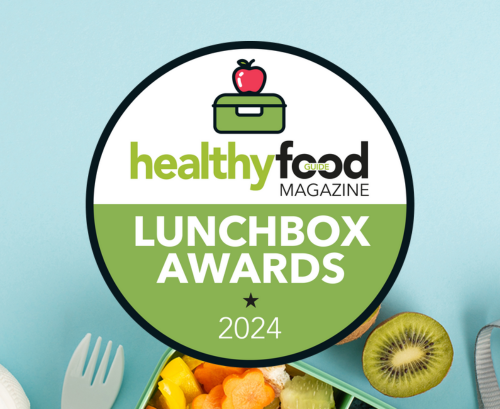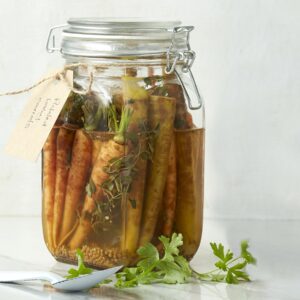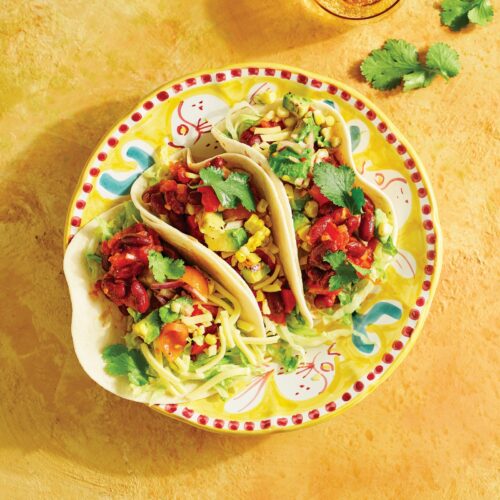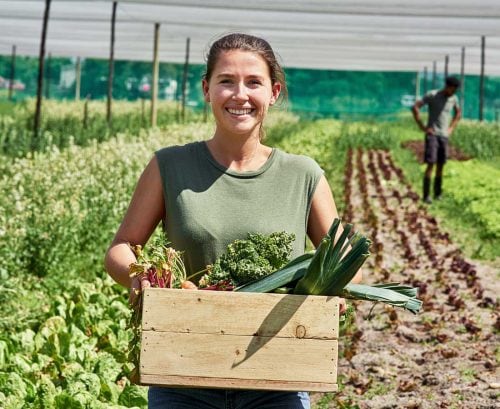
If the world switched from an animal-based diet to a plant-based diet, we could get halfway to limiting global warming to 2 degrees Celsius and keep global emissions ‘paused’ for 30 years, new modelling suggests.
The peer-reviewed study, published in PLOS Climate, modelled the global transition to a plant-based diet, phased in over 15 years, and its potential impact on greenhouse gas emissions and biomass recovery on land previously used for livestock.
The researchers say, ‘replacement of animals in the global food system could help put the brakes on climate change.’
Animal agriculture contributes to global warming through methane and nitrous oxide emissions and the use of land to support livestock, study co-authors Patrick Brown and Michael Eisen say.
“In this analysis, switching to plant-based agriculture could reduce emissions by the equivalent of 25 gigatons of carbon dioxide per year. A 15-year phased transition could reduce emissions sufficiently to stabilise greenhouse gas levels for 30 years. Impacts of phasing out animal-based agriculture differed greatly by species, with cattle accounting for 71 per cent of the benefits to emissions (47 per cent through beef and 24 per cent through milk). While fully phasing out animal-based agriculture was projected to have the largest impact, replacing ruminants alone could achieve over 90 per cent of the reduction in emissions”, a press release on the research says.
The model, however, doesn’t look at geographic, cultural, and nutritional constraints of a global switch to plant-based eating.
Professors Brown and Eisen acknowledge the economic and social impacts of a switch may, in some regions, be major and acute obstacles, but they say existing crops would only need minor adjustments to be sufficient to feed the global population and optimise nutrition.
“The transition away from animal agriculture will face many obstacles and create many challenges. Meat, dairy and eggs are a major component of global human diets, and the raising of livestock is integral to rural economies worldwide, with more than a billion people making all or part of their living from animal agriculture,” professors Brown and Eisen say.
But, they say, ‘business as usual’ or further expansion of animal agriculture could have catastrophic impacts on the climate, biodiversity and human health.
How to eat a plant-based diet
Getting the entire world to switch to a plant-based diet might be a big ask, but previous studies have shown that even eating a mostly plant-based diet can help the planet and your health, too.
If you’d like to try cutting down on the amount of meat you eat or going completely plant based, here are a few tips to get you started:
- Plant-based diets can be vegan, vegetarian, pescatarian or flexitarian. Vegans eat (and use) no animal products at all, while vegetarians can eat dairy and eggs but just avoid meat. Flexitarians eat mostly plant foods but may eat a little meat, and pescatarians eat mostly like vegetarians but include fish or seafood.
- Keep an eye on your iron if you’re vegetarian or vegan. Non-haem iron (from plants) is a bit harder for your body to absorb, so you’ll need to make sure you’re getting plenty, and include vitamin C-rich foods in your meals to help absorption. You can find good plant sources of iron here.
- Vegetarians and vegans have higher protein needs than meat-eaters, so make sure you include a source of protein at every meal. Eggs, yoghurt, milk and cheese are good if you’re vegetarian, along with the vegan-friendly tofu, tempeh, sunflower seeds, legumes and peanuts.
- One essential nutrient vegans can’t adequately get from their diet is B12. So, take a supplement and include fortified products, such as plant ‘milks’ and cereals, into your day.
- If you don’t want to cut meat or animal products out completely, try starting out by replacing one or two meat-based meals a week with a vegetarian or vegan option. We have hundreds of vegan and vegetarian recipes for you to try.
Article sources and references
- Eisen MB, Brown PO (2022) Rapid global phaseout of animal agriculture has the potential to stabilize greenhouse gas levels for 30 years and offset 68 percent of CO2 emissions this century. PLOS Clim 1(2): e0000010. https://doi.org/10.1371/journal.pclm.0000010https://journals.plos.org/climate/article?id=10.1371/journal.pclm.0000010
- Scimex, 2 February 2022. A global plant-based diet could have a massive impact on reducing global warming. Accessed 3 February 2022https://www.scimex.org/newsfeed/a-global-plant-based-diet-could-have-a-massive-impact-on-reducing-global-warming
- Willett W et al. 2019. Food in the Anthropocene: the EAT–Lancet Commission on healthy diets from sustainable food systems. Lancet 393:447-92https://eatforum.org/content/uploads/2019/01/EAT-Lancet_Commission_Summary_Report.pdf
www.healthyfood.com


